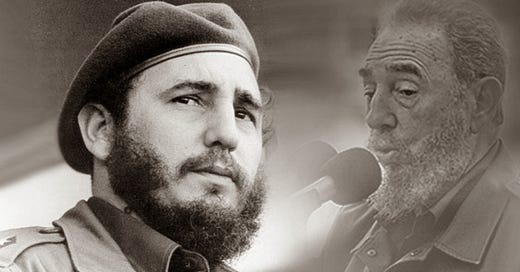Today is the fifth anniversary of the death of Fidel Castro. I can see from my apartment balcony the temporary outdoor theatre that has been constructed on the huge stairway that is the entrance to the University of Havana, where a commemoration of the anniversary of his death is being held.
As my own contribution to the commemoration, I reproduce here (unedited) my blog post of November 28, 2019, written on the occasion of the first anniversary of Fidel’s death.
The political legacy of Fidel
November 28, 2019
On the first anniversary of his death, Cubans have been reflecting on the meaning of the life and work of the historic leader of the Cuban Revolution.
Fidel Castro Ruz was born in Birán, in the then Eastern province of Oriente, in 1926. The son of a Spanish peasant immigrant who became a landholder, Fidel was educated in private Catholic schools, where he came to appreciate the Christian personal ethic of his teachers, without ever being convinced of the existence of God.…



